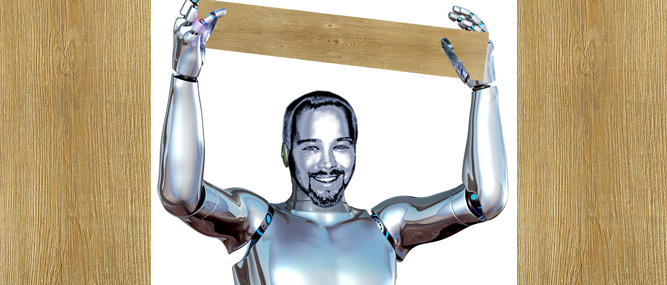Having toured a number of pallet plants in Europe, one thing jumps out to you right away – the Europeans love their lumber to be as nice as they can afford. Sometimes you will see lumber going into nailing machines that look like it could almost be used to make furniture.
Pretty wood is not what companies use in America. Pallet manufacturers try to use whatever they can get away with to lower cost.
So, it shouldn’t be very surprising that the fastest production speeds that I have ever seen all take place in Europe. Yes, they have more automation driven by higher labor costs. But I think a big reason for the difference is the quality of the lumber used. Poor quality material leads to jams and work stoppage. It also produces inferior quality pallets in both appearance and performance.
And as labor tightens and companies in the United States start looking at advanced automation, such as robotics, lumber needs to be part of the conversation. The best high-tech solution in the world can easily be thwarted by knots, checks, wane and other defects in lumber. It all starts with wood procurement. Garbage in, garbage out. Many people never realize how much poor quality lumber costs in terms of scrap waste, production stoppage, damaged products, unhappy customers, etc. But they easily see the purchase price and think “I can never make a profit if I pay more for lumber.”
Are you even getting what you are paying for now? Do you have a program to inspect incoming wood shipments? Do you have a well-established criteria for quality? Do you have a way to compare various suppliers to see who really gives you the best stuff for the money? One of the reasons that I think you will see more scanners used in pallet lumber operations in the future is the need to quickly separate the wheat from the chaff. Automation can do this so much faster than people. But the technology is in its infancy when it comes to deployment in the pallet industry. Scanning and optimization systems have been used for years in grade sawmill operations.
Wood is variable in quality by nature. No two trees are 100% alike. If you have a way to cull out the better material you can use that for automated nailing and put the poorer quality lumber to good use for hand nailing custom pallets. I have been to many pallet plants and very few have a strong focus on inspecting and optimizing lumber.
The attitude is typically, “This is what we get, so this is what we have to use.” But what if you can do something about it? As we have already seen, you can.
Improved procurement and lumber sorting can make all the difference. Then you might even run lumber through a resaw or planer to ensure uniformity in size. Last month, the Enterprise ran a feature story on PKF/Post, a Dutch pallet manufacturer that planes its lumber for supplier nailing efficiency. In the May issue, the Enterprise revealed the secrets of Hogbox in Arkansas. This pallet manufacturer runs its own cut up line and has people in the end who are hand sorting and doing visual inspection at the same time. If you have people stacking lumber, they can also be looking to optimize that material too.
Education is a must when it comes to lumber quality improvement. Everyone needs to be looking out for it and realize how much it can impact plant efficiency. Do your typical workers know the difference between common wood quality problems?
An upcoming issue of Pallet Enterprise will carry a series on these topics that you can use to educate your employees. If they don’t understand this issue, they can’t help you improve.
At the end of the day, wood is one of the most variable materials on the planet. Naturally, it can be hard to incorporate into a highly automated production process. But you can take steps to optimize what you have and look for small improvements. Never forget what my elementary school teacher told me, “Garbage in, garbage out. What you focus on is what you get.”




